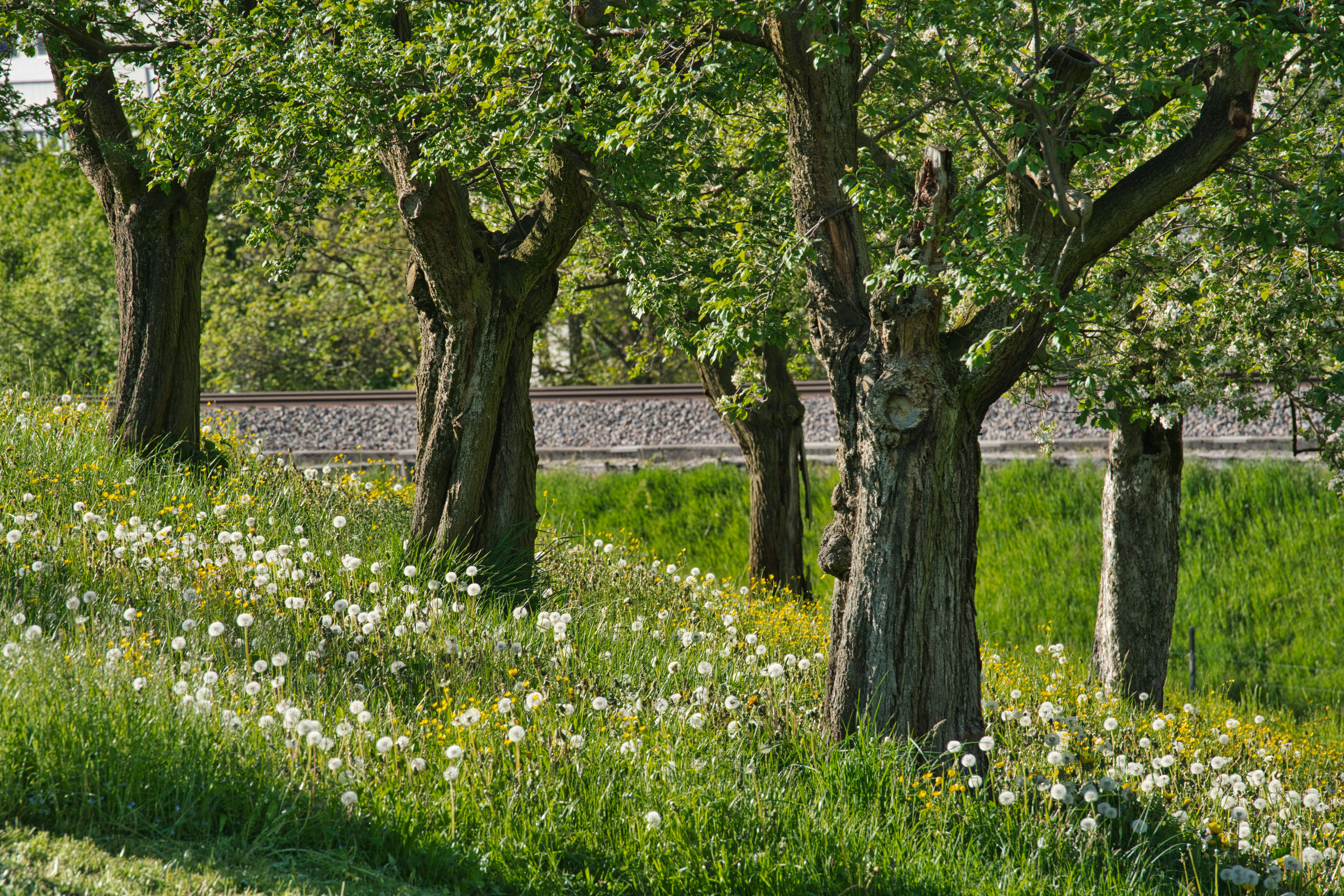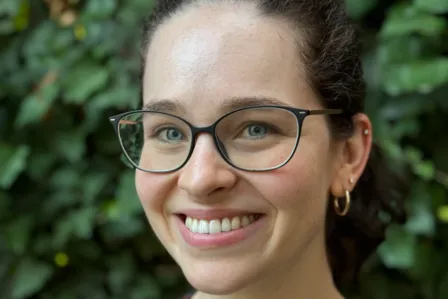A guide to dealing with the climate crisis on a personal and church level
A guide to dealing with the climate crisis on a personal and church level
“The goodness of God’s creation, and the value given to every part of it, call people to respect, protect, and care for the creation and all interrelated aspects of it.”
Humanity is in a human-caused climate crisis. The effects of this climate crisis can no longer be ignored. There are numerous examples of this, one of them being the current crisis situation in Austria. The fact is that in Austria, we have experienced three century-floods in the last twenty-five years and they are linked to the climate crisis: The warmer the air, the more water it can hold. The warmer the sea water, the more water evaporates. This results in much more water vapor in the air than usual, which leads to more intense precipitation events. If the ground is built-up or dry, the water cannot seep in quickly enough, and the sewer systems are not designed to handle such large amounts of water. Thus, heavy rainfall causes floods, landslides, drinking water contamination, and significant property and personal damage.
Individuals are often urged to make changes in their lifestyles to meet climate goals. However, achieving these climate goals is not solely in our hands as individuals. Of course, we have an influence, but ultimately, it is the governments and large companies that hold more power. This also applies to issues of social injustices that are caused or exacerbated by the ecological crisis.
Many people understandably feel helpless and hopeless in the face of the current situation and wonder what they can do to improve it. As Christians in the Methodist tradition, it is clear to us: Jesus taught us hope and initiative. We are called to take our responsibility for God's creation seriously and to use our opportunities. This attitude is the foundation of our commitment to preserving creation. This document aims to provide guidance on how to deal with the climate crisis on a personal and church level based on the three pillars that form the foundation of our work in creation responsibility.
Three Pillars of creation responsibility
Pillar 1: Lifestyle
We as Methodists are urged “to adopt sustainable habits and practices, including refraining from overconsumption, repurposing and recycling materials, avoiding products that pollute or otherwise harm the environment, and reducing the carbon footprints of individuals and families by reducing overall reliance on fossil fuels for heat, transportation and other goods.”
People and congregations are invited to critically, but lovingly, question their lifestyle. Are we taking care of God’s creation? Are we protecting and nurturing the world that God has given us? This is about examining how we, as individuals, communities, and also as a church, live our daily lives and whether we can make more environmentally, animal, and human-friendly decisions. Lifestyle changes require urgency, motivation, time, and patience to be sustainable in the long term.
- Questioning: Why do we need to change anything? Some people have been aware of and learning about the climate crisis for years, while for others, it’s a new topic or something they haven’t thought much about yet. Use this opportunity to learn and try to be open-minded. If you don’t yet feel the urgency, have conversations with people who do. Listen, ask questions, do your own research, and find out why it is important to you to preserve God’s creation. Even if the urgency is already felt, there is always something new to learn about the climate crisis and the preservation of creation.
- Reflecting: What are we already doing, and what can we change? Are our decisions guided by love and do they spread love? Are we living in a just world? Are we following Jesus' example? Do we care for our fellow human beings and our environment? Do we consume more than we really need? What are feasible changes that we can make? How can we reduce our consumption? How do we identify what we really need? What and where do we buy? How do we get to work, school, to friends, or to church?
- Changing: What are small steps and changes that we can make? Here are a few simple examples and suggestions as a starting point:
- Order vegetarian or vegan dishes when eating out
- Buy regional and seasonal foods
- Shop at small (regional) stores and second-hand shops instead of large (international) chains
- Unsubscribe from leaflets and newsletters
- Use a reusable to-go cup
- Reduce the consumption of foods and products packaged in single-use plastic
- Avoid buying fast-fashion items
- Walk or cycle short distances in the city
- Leave the car and use public transport
- If driving a car, drive slower rather than faster (speed limit 100 km/h)
- Reach out to people and ask how they are really doing
- Discuss in communities what makes a good life
- Build relationships that mutually strengthen and support the implementation and maintenance of lifestyle changes
- Pay attention to a positive dynamic—highlight possibilities and encourage people (instead of assigning blame to oneself and others)
Pillar 2: Ecological and social justice
“The United Methodist Church, including its predecessor bodies, has a long and rich history of concern for social justice. Its members have often taken forthright positions on controversial issues involving Christian principles.”
Our personal behavior, as well as our behavior as communities and as a church, is political. We are fortunate to live in a democracy in Austria. Within our democratic republic, there are many opportunities to participate and have a say and there are also many ways to act outside the general political system.
- Through our participation: Participate in elections and demonstrations. Depending on citizenship, we have the right to vote at various political levels. The more people who vote, the more representative the results are. Even those who are not eligible to vote can get involved by participating in a “Pass-Egal-Wahl” (a symbolic vote to represent those without the right to vote) and thus express their will. But democracy is more than just voting. Every person in Austria has the right to take part in demonstrations, and the more people who participate in a demonstration, the clearer it is to decision-makers that the issue is important to the population!
Voluntary participation and involvement in organizations that advocate for social and environmental justice, environmental protection, aid organizations, and so on, is another way to be politically active but this time outside the political system. - Through our statements: In a democracy, we have the opportunity and right to make statements, whether decision-makers want to hear them or not. By writing to politicians and business owners, we can, as a church and as individuals, communicate to decision-makers what we lack or why something is important to us. An example of this is the Climate Resolution that the United Methodist Church in Austria submitted to the Austrian government in 2023.
Another way to take a stand is by supporting citizens' initiatives, referendums, and petitions. BEWARE: There are many petitions circulating on the internet! Always read the associated texts carefully and question them. The principle is the same as for demonstrations: the more participants, the stronger the message. Therefore, it is important to stand up for topics that are personally, morally, and ethically justifiable and important, but at the same time not allow ourselves to be persuaded or suppressed.
We also have the opportunity to share our voices in our professional and social contexts. If someone is a teacher for example, they can raise their voice at school, at conferences, in the classroom, and so on. - With our money: Whatever we buy and regardless whether we support the product, its production, or the company—we are saying “YES, we want this” or “we approve of this” with our purchase. Conversely, if we buy products that we ethically and morally want to support, we are saying that we find them better than other products. Conscious shopping is not only empowering because we can decide for ourselves what to do with our hard-earned money, but also because it has a direct effect on the health of the planet.
Another way to make a difference with our money is by donating to local and international organizations that work for the protection of people, animals, and the environment, as well as social and environmental justice.
Pillar 3: Sharing knowledge
“As United Methodists, we profess that all we are and all that we possess, belong to God. We are temporary stewards of the resources and material goods that we have accumulated. In our financial dealings and relationships no less than other aspects of discipleship, we are compelled to serve God and neighbor in all we do.”
Within our church communities, and of course beyond, there is already a wealth of knowledge and experience on the topics of environmental and nature conservation, creation responsibility, as well as ecological and social justice. Various of our congregations in Austria already have projects related to these topics. Now, it is time to connect: Feel free to contact us at klima@emk.at to report on the initiatives in your own congregation and to connect with the initiators in other congregations. If you are interested in the topic, getting in touch is also welcome and encouraged. The Creation Responsibility Network needs to become more visible so that we can learn from and support one another and ultimately implement as much as possible in a resource-efficient way.
- Sharing: Talk about Creation Care in your church community, at school, at work, and at home. Discuss the topic of climate and social justice with colleagues, neigbhours, friends, and family members; share your ideas and worries. Church coffee hour is the perfect place to strengthen our church network and relationships through informal exchange. Personal relationships are still the most important factor in changing behavior and attitudes.
- Developing: As mentioned earlier, there are some initiatives in the various congregations that can be expanded and developed further. Together with other communities, or even neighboring countries, we can reach and motivate more people to engage with the topic of creation responsibility and bring about sustainable change. On our website of the United Methodist Church in Austria, we can publish suggestions for promoting creation responsibility, as well as reports on the current situation and various projects.
- Teaching: Pastors, Sunday school teachers, church leaders, preachers, and worship leaders: Integrate this topic into your platforms, sermons, Sunday school lessons, Bible study groups, and more. Explain why this topic is so important, especially for us as Christians and Methodists. Share your experiences and encourage people to think about their contributions to Creation Care. Invite people to engage in discussions on the topic.
This is not about making people feel guilty for what they have or have not done. The most important thing is that we don’t have to be perfect in our behavior, but that we try to live up to Jesus’s example by treating ourselves, our fellow human beings, and our environment with love, even when we sometimes fall short of our resolutions.
It’s about encouraging each other and promoting the development of our church.
Together, we can ultimately make a difference.
Background
This basis document was developed under the leadership of Simone Viljoen together with a group of people who deal with the topic as well as the steering group of the "Netzwerk Christliche Weg- und Lerngemeinschaft".
The new revised Social Principals of the United Methodist Church have been authorized by the General Conference of The United Methodist Church in May 2024

